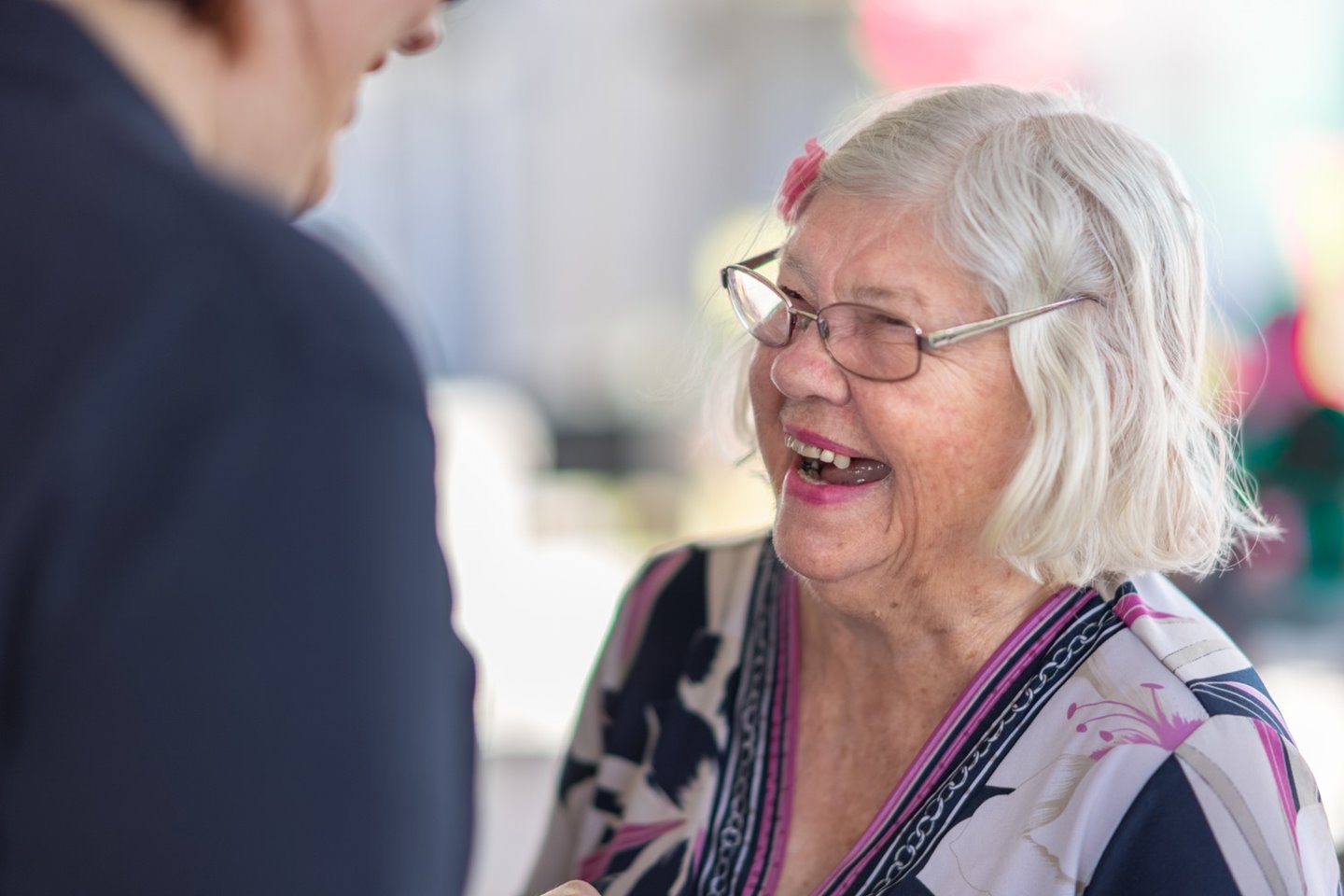What are the Aged Care Standards and why do they matter?

The services in Toowoomba, Stanthorpe and St George each scored 44 of 44 standards met.
Margaret Cumes is the Regional Manager for the three services assessed, and said that the achievement of reaching all standards was the result of a mammoth effort from each of the service teams, and that they are really pleased by the outcomes.
Margaret said achieving a strong result where services meet all requirements set out in the eight aged care quality standards doesn’t just happen, it is thanks to the hard work of the staff and their ongoing commitment to providing the best possible care for residents that means such results are possible.
“These results show a great achievement for these regional and remote locations, and are just part of the bigger picture of the high standard we aim for at Churches of Christ,” she said.
What exactly are the standards?
As you search for a residential aged care home for yourself or a loved one, you may come across the Aged Care Standards and service accreditation. Here, we explain what these are and why they are important.
The Aged Care Quality Standards are set by the Commonwealth Government and consist of eight standards focused on the level of care and service people can expect from their aged care service provider.
The standards cover all aspects of managing an aged care service and centre around a consumer’s rights to make informed choices, understand their options, and promote their dignity and independence in relation to their personal and clinical care. The standards are set around the support residents receive, the service environment, and how the governing body is held accountable for the delivery of safe and inclusive care and services.
Within each standard is a set of requirements that an aged care service is assessed against. Each of our services undergoes an assessment process to make sure we are compliant with these standards.
For more detailed information about the Aged Care Quality Standards visit Aged Care Quality Standards | My Aged Care
What happens in the accreditation process?
The accreditation process happens on a regular basis at each of our services and takes place over three days. Whether the accreditation is taking place for the first time (such as for a new service), or it’s is for re-accreditation, the process begins with a self-assessment, where the service evaluates its own performance against the quality standards. Once submitted, the service knows that an assessor from the Aged Care Quality and Safety Commission will be coming, but not exactly when. Residents and their families are informed of the upcoming assessment.
During the site visit, the assessment team meets with the person in charge of the service, as well as with residents and their families. They assess the service’s performance against the quality standards by collecting evidence through reviewing documents and observing practices, including meal service, medication dispensing, caring, and administrative activity. They also talk with staff, residents and families to get feedback about the service.
Once this on-site process is complete, the Commission determines if the service is compliant or non-compliant with the quality standards. In the case where a service is non-compliant, it will be issued Non-Compliance Notice, and be given the opportunity to respond.
“This is not an industry where you tick the box once, and get the paper and you’re done” Margaret, said. “You are constantly working to maintain a level of compliance.”
The quality assessors can also do ‘walk in’ visits to randomly check on compliance at any time.
Why is compliance so important in Aged Care?
FORMALISED STANDARDS
One of the important aspects of having quality standards is that it raises the bar on the quality of care for our older people across all providers of aged care services. It creates a baseline standard that providers must meet in order to operate an aged care service.
When it comes to making a choice about the home the is right for you, this can give you assurance that the place you are considering has a good level of care. This not only ensures quality, but that the operations are meeting legislation.
If you are looking for a home for yourself or a loved one, you can seek an accredited location and feel safe in knowing that there are standards that need to be met.
Additionally, funding support from the government is conditional to compliance with the standards. So, if a provider is consistently non-compliant, they may lose funding, and will be unable to remain a provider.
EMPLOYEES
Having this accreditation is also important for current and future employees in knowing that the organisation they are working for values quality and compliance.
For Churches of Christ, it’s important to us to not just meet the minimum standards, but to actively provide a high standard of care for our residents and their families.
How does Churches of Christ maintain a high level of compliance?
There are several factors that make compliance and quality at Churches of Christ successful.
“We’re meeting standards every day and every shift,” Margaret said. “It takes a lot of work, but it’s worth it.”
MANAGEMENT and TEAM CULTURE
It’s important to have a team who are invested in the organisation and love coming to work―a good team made up of staff who have interest in providing a high standard of care.
“It is having people who are there to make a difference, and invested in taking part and supporting leadership to be the best we can be,” Margaret said.
“It really is a team effort, it’s dependent on everyone―those on site, head office, directors, governance―that culture of caring about quality really aligns with our organisational values. The culture is genuine and warm, and residents have a lot of good things to say.”
“Our services at Stanthorpe and Toowoomba have many long-term team members, which makes a big difference in building relationships and showing stability for residents.”
Margaret said Churches of Christ work hard to look after staff through ongoing training, promoting from within, and making career pathways available.
POLICIES
The organisation has strong policies and procedures that are embedded in day-to-day work.
“Staff are onboarded really well, with access to an online portal, onsite training, and there is a buddy system to pass on knowledge and support new staff,” Margaret said.
“Management make sure there is always someone to ask if there is a problem. The Service Managers have a full understanding of the business, and they make themselves available, checking on compliance, keeping a face available for staff and connecting with residents and their families.”
“We also have stringent policies around our IT and digital processes to ensure client data is safe. For example, if medications are being administered, and someone needs to walk away from the trolley, there is policy around what you need to do to lock everything down so no one can access data or information. Keeping information confidential is very important, and we undertake training with staff to make sure this is kept to a high standard.”
Overall Churches of Christ have a strong track record of meeting compliance in the Aged Care Standards accreditation process. For us, it’s not just about meeting the minimum, but providing a high standard of care, over and above the legislative baseline, all the time.



